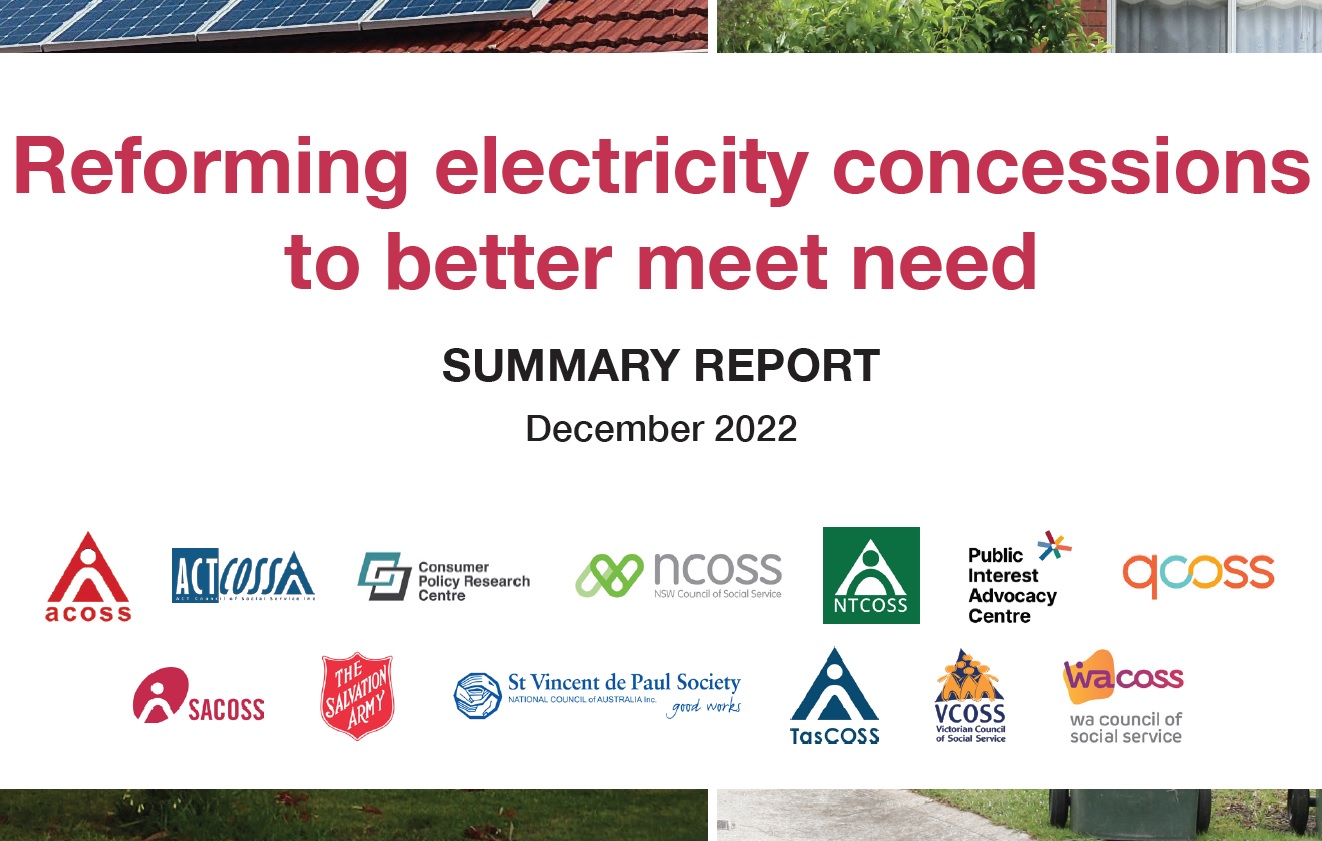A report released today by social service organisations found that while around three million households receive some form of ongoing financial assistance for their energy bills, the poor design and implementation of the assistance means too many people still can’t afford the energy they need.
Read the report: Reforming Electricity Concessions to Better Meet Need
Too many people are depriving themselves of energy taking fewer showers, cooking less, not heating or cooling their homes to reduce bills, going without food, medicine, and other essentials to pay energy bills and still finding themselves in energy debt with no way to pay debt down.
The report found that providing energy concessions and annual rebates as a fixed amount means it does not respond to energy price changes, seasonal variations in energy use, or the energy performance of the home. It also means that some people are getting more assistance than they need, and others are getting significantly less.
For example, a fixed concession of $241.63 a year would only cover 7% of the energy bill of a 4-person family in a 3-bedroom home without solar, compared to a single person 2-bedroom home with solar where the same concession covers 63% of the energy bill.
Many of these concerns raised in this report were raised by the Australian Competition and Consumer Commission (ACCC) in 2018. Its recommendations have not been acted upon.
The report recommends shifting to a percentage-based concession or rebates (such as the regime currently operating in Victoria) which will help adapt support relative to need and circumstances, changes in the energy market and technology, and help manage the risks of the energy market transition for those most in need.
The report also considers transitional arrangements and notes that investment in energy efficiency, electrification and solar for low-income homes, combined with percentage-based concession, would ultimately reduce the cost to governments as well as households.
The report recommends Energy Ministers commit to undertake energy concessions and rebate reform as relevant to their jurisdiction to improve equity, accessibility, and better meet people’s energy needs and changing circumstances. The report recommends the ACCC to model how percentage-based concessions can be implemented, and separate reviews to look at eligibility and putting in place processes such as consumer focused automation to improve access to concessions and rebates.
It also outlines complementary measures Federal, State and Territory Governments should take to support the effectiveness of energy concessions:
- immediately lift income supports above the poverty line to improve the capacity of people on low incomes to afford energy bills;
- co-invest in efficient electric appliances, thermal efficiency, and solar upgrade programs for low-income households;
- shift the costs of green schemes off bills or offset the costs for people on low incomes.



